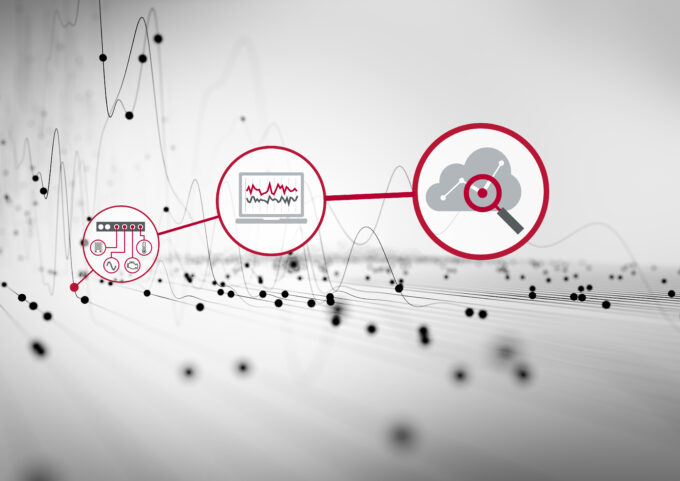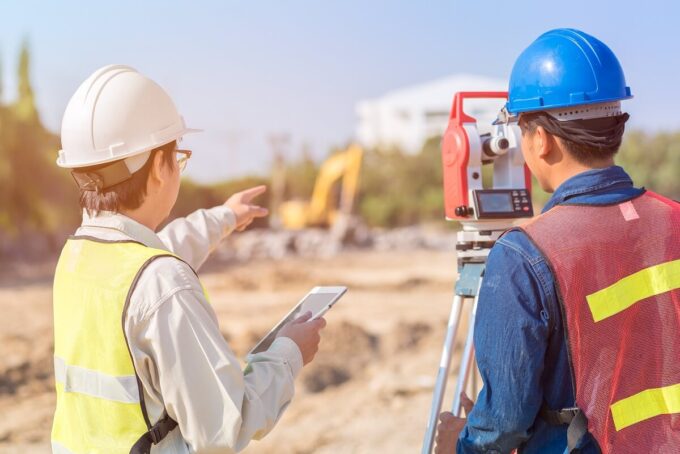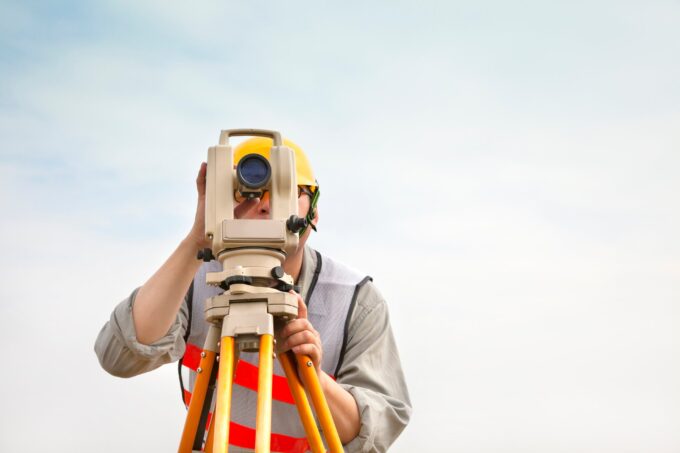In today’s fast-paced and data-driven business landscape, companies are increasingly turning to surveying and measuring technology to gain a competitive edge and drive profitability. This comprehensive text explores the various aspects of measurement technology and how it can contribute to a company’s financial success. We delve into the reasons companies work with measurement technology, the concept of measurement itself, the potential earnings in the surveying industry, the top players in surveying and measuring technology, and whether indoor measurement differs from polar measurement.
How can surveying and measuring technology make your company profitable?

Incorporating surveying and measuring technology into business operations can yield numerous benefits, ultimately leading to increased profitability. By utilizing precise measurement tools and techniques, companies can optimize resource allocation, enhance product quality, enable data-driven decision-making, and facilitate innovation and research.
Accurate quantifications enable companies to streamline operations, minimize waste, and effectively allocate resources. By precisely measuring materials, space, or resources,

companies can avoid overstocking or shortages, leading to cost savings and improved efficiency.
Quantifications technology allows for meticulous quality control, ensuring that products meet or exceed industry standards. By maintaining consistent product quality through accurate measurements, companies can reduce defects, rework, and customer complaints, leading to improved customer satisfaction and loyalty.
Measurements provide vital data for strategic decision-making. By collecting and analyzing accurate measurements, companies can identify trends, optimize processes, and seize opportunities. This data-driven approach reduces the risk of making costly errors and helps companies make informed decisions that enhance profitability.
Advanced surveying technology supports research and development efforts, fostering innovation and the creation of cutting-edge products or services. By investing in measurement technology, companies can stay ahead of the competition, attract new customers, and explore new revenue streams, thereby driving profitability.
Why do companies work with measurement technology?

Companies work with measurement technology for several compelling reasons:
- Quantifications technology offers precise and accurate data, allowing companies to make informed decisions based on reliable information. Accurate measurements are crucial in industries such as manufacturing, engineering, and construction, where small discrepancies can have significant consequences.
- Many industries have stringent regulations and standards that necessitate precise measurements for compliance purposes. Measurement technology ensures adherence to these requirements, avoiding legal repercussions and reputational damage. For example, pharmaceutical companies must comply with strict dosage measurement standards to ensure the safety and efficacy of their products.
- By integrating measurement technology into manufacturing processes, companies can ensure consistent product quality. Accurate measurements enable early detection of defects, reducing rework and minimizing customer complaints. Quality control through measurement technology improves brand reputation and customer satisfaction, leading to increased profitability.
- Quantifications provide valuable insights into operational processes, enabling companies to identify bottlenecks, inefficiencies, and areas for improvement. By analyzing measurements and metrics, companies can optimize workflows, eliminate waste, and reduce costs. Process optimization drives efficiency and enhances profitability.
- Adopting advanced measurement technology can differentiate a company from its competitors. Accurate measurements lead to higher precision and better quality, attracting customers who value reliability, accuracy, and innovation. Companies that invest in cutting-edge measurement technology gain a competitive edge and position themselves as industry leaders.
What is measurement?

Measurement is the process of quantifying or assigning numerical values to physical properties or phenomena. It involves comparing an unknown quantity against a known standard or reference unit to determine its magnitude. Measurements provide objective and quantitative information, enabling businesses to evaluate, monitor, and control various parameters essential for their operations. Measurements encompass a wide range of fields, including distance, volume, temperature, pressure, time, and more. With advancements in technology, measurements have become increasingly precise, reliable, and efficient, revolutionizing various industries.
Measurement involves several fundamental elements:
Quantification relies on standardized units of measurement, such as meters, kilograms, seconds, or degrees Celsius. These standard units provide a universal reference for comparing and communicating measurements accurately. Measurement is facilitated through the use of specialized instruments and tools. These can include devices such as rulers, calipers, thermometers, pressure gauges, or advanced electronic equipment like laser scanners or GPS receivers.
Calibration ensures the accuracy and reliability of measurement instruments. It involves comparing the instrument’s measurements to a known standard and making necessary adjustments to minimize errors and uncertainties. Measurements generate data that needs to be analyzed and interpreted. Statistical techniques, mathematical models, and data visualization tools help extract meaningful insights from measurement data.
The concept of measurement extends beyond physical quantities and can also be applied to non-physical attributes, such as customer satisfaction, employee performance, or financial metrics. Measuring intangible aspects allows companies to track progress, set goals, and make data-driven decisions in these areas as well.
If you work with surveying – what can you earn?

Working in the surveying industry offers promising earning potential. The compensation can vary depending on factors such as experience, qualifications, specialization, location, and the type of surveying work performed. Surveying professionals can pursue careers as: Land surveyors specialize in measuring and mapping land features, boundaries, and property lines. They play a crucial role in real estate development, construction projects, urban planning, and environmental assessment.
Land surveyors with extensive experience and relevant certifications can command higher salaries. Hydrographic surveyors focus on mapping and measuring underwater features, such as coastlines, riverbeds, or seabeds. Their work is essential for maritime navigation, offshore resource exploration, and coastal zone management. Hydrographic surveyors often work with specialized equipment and may have opportunities for higher earnings due to the specialized nature of their work. Quantity surveyors specialize in cost estimation and financial management of construction projects.
They assess project requirements, prepare budgets, and monitor costs throughout the project lifecycle. Quantity surveyors with strong financial acumen and project management skills can earn competitive salaries, particularly in the construction and infrastructure sectors. Geodetic surveyors focus on measuring and mapping the Earth’s surface, taking into account the curvature of the Earth and gravitational variations. Their work is crucial for geospatial reference systems, satellite positioning, and cartographic mapping. Geodetic surveyors often work on large-scale projects and may earn higher salaries due to the specialized nature of their expertise.
Construction surveyors provide precise measurements and guidance during construction projects, ensuring accuracy and compliance with design specifications. Their work involves setting out boundaries, benchmarks, and verifying the alignment of structures. Salaries for construction surveyors can vary based on the complexity of projects and the level of expertise required.
Who are the best at surveying and measuring technology?

Several companies and organizations excel in the field of surveying and quantification technology, showcasing their expertise and innovative solutions. While the term “best” may vary depending on specific criteria and industry focus, here are some notable players in surveying and measuring technology:
Trimble Inc.: Trimble is a global leader in providing advanced surveying and measurement solutions. They offer a wide range of products, including GPS/GNSS receivers, laser scanners, total stations, and software for data collection and analysis. Trimble’s cutting-edge technology and comprehensive solutions make them a preferred choice for professionals across various industries.
Leica Geosystems: Leica Geosystems, a part of Hexagon, is renowned for its precision measurement instruments and geospatial solutions. Their portfolio includes high-accuracy surveying equipment, laser scanning systems, airborne sensors, and software platforms. Leica Geosystems is widely recognized for its innovation, reliability, and commitment to delivering industry-leading solutions.
Topcon Positioning Systems: Topcon is a prominent player in the field of surveying and quantification technology. They offer a broad range of products, including total stations, GNSS receivers, laser scanners, and software solutions. Topcon’s advanced technology and focus on integration and interoperability make them a trusted partner for professionals in construction, geospatial, and agricultural industries.
Hexagon Geosystems: Hexagon Geosystems specializes in developing measurement and surveying solutions for a diverse range of applications. They offer an extensive portfolio of products, including high-precision GNSS receivers, terrestrial laser scanners, mobile mapping systems, and software platforms. Hexagon Geosystems’ commitment to technological innovation and customer-centric solutions has earned them a strong reputation in the industry.
Faro Technologies: Faro Technologies is a leading provider of 3D measurement and imaging solutions. They offer a range of portable coordinate measuring machines (CMMs), laser scanners, and software for dimensional analysis and inspection. Faro’s focus on accuracy, portability, and ease of use has made them a preferred choice for professionals in industries such as manufacturing, architecture, and forensics.
These companies have established themselves as industry leaders through their expertise, technological advancements, and commitment to delivering reliable and innovative surveying and measuring solutions. However, it is important to consider individual needs, project requirements, and specific industry demands when selecting the best surveying and measuring technology partner.









